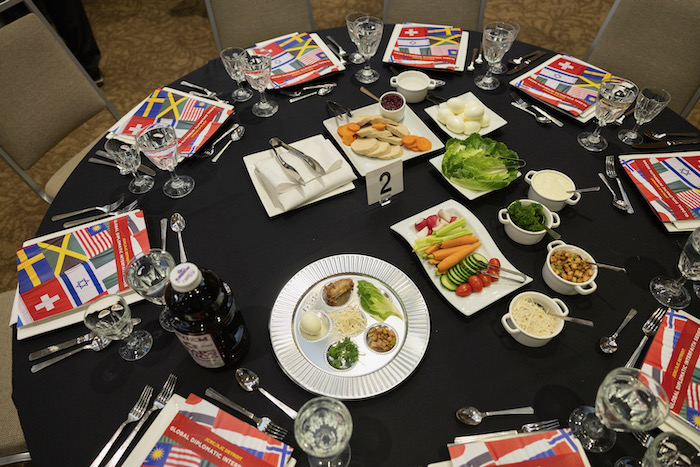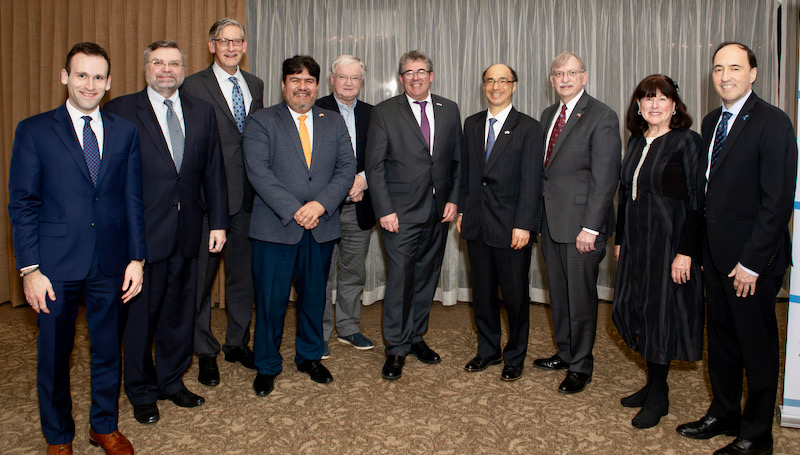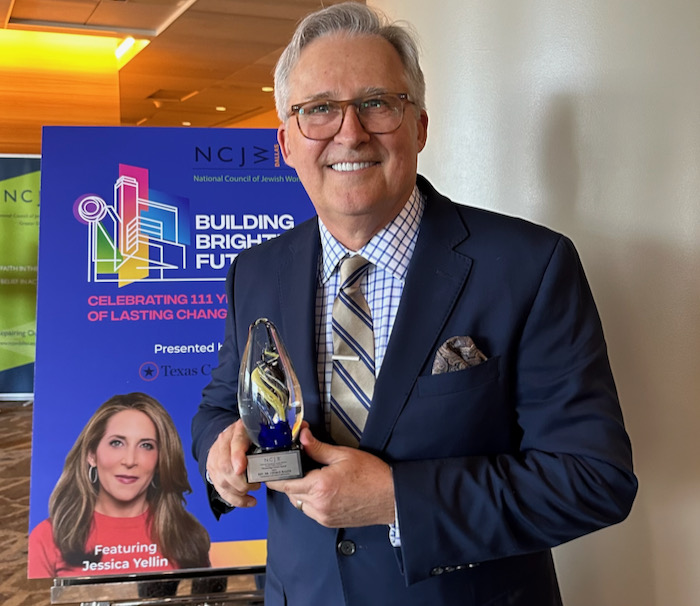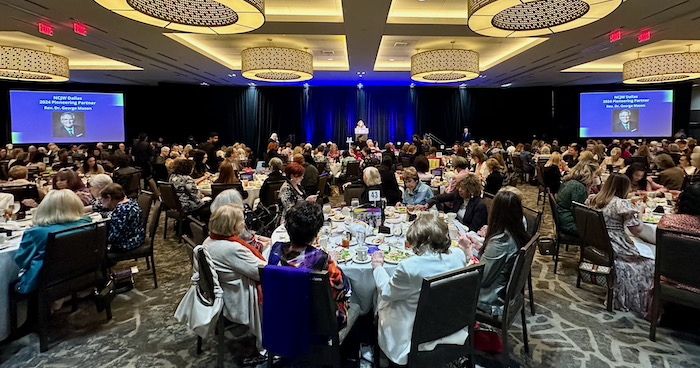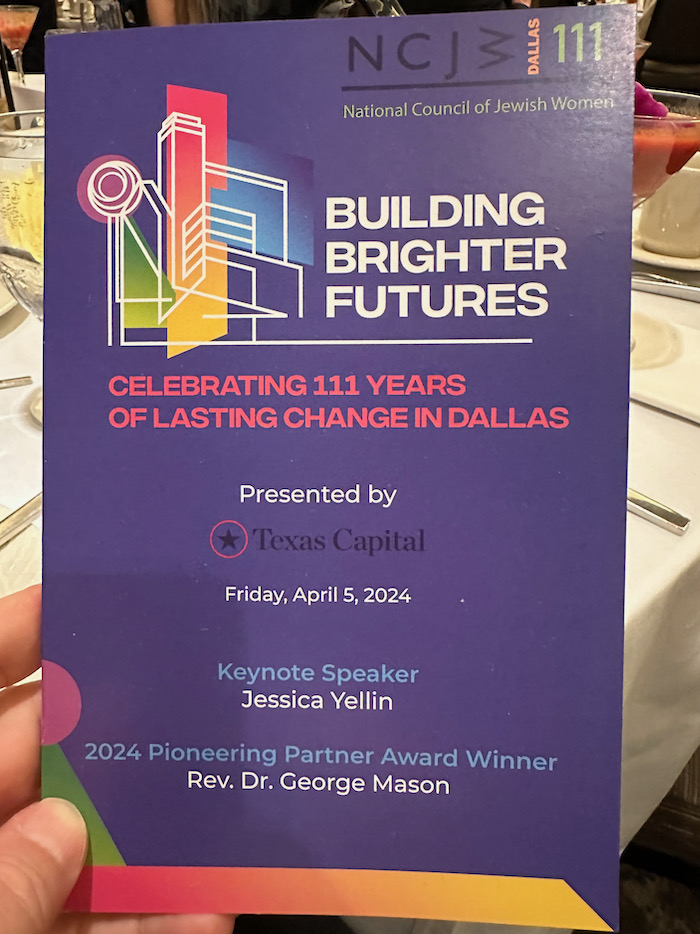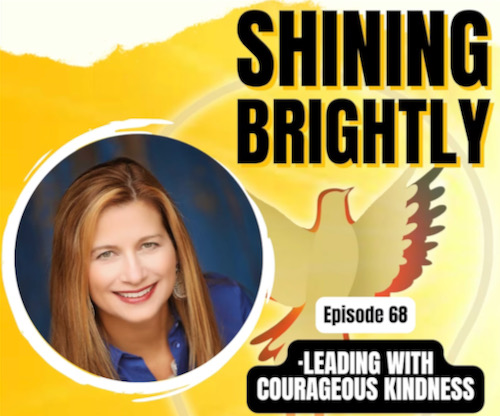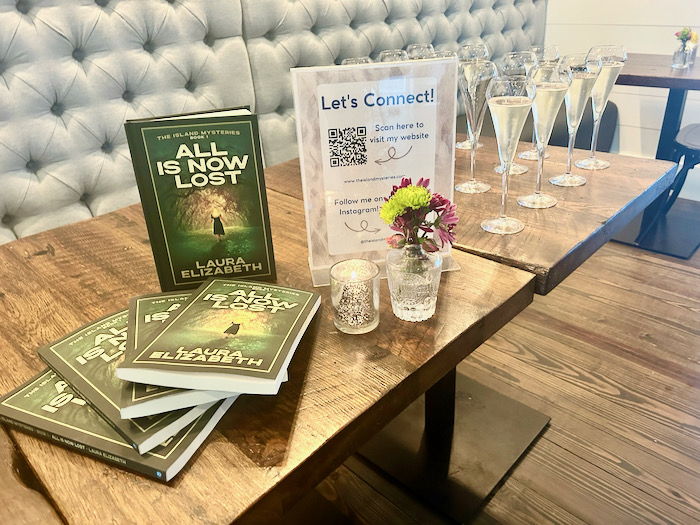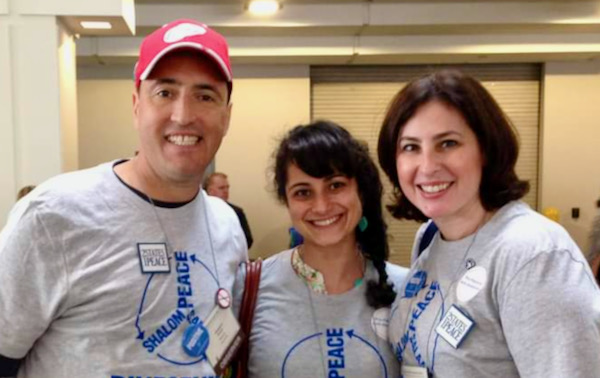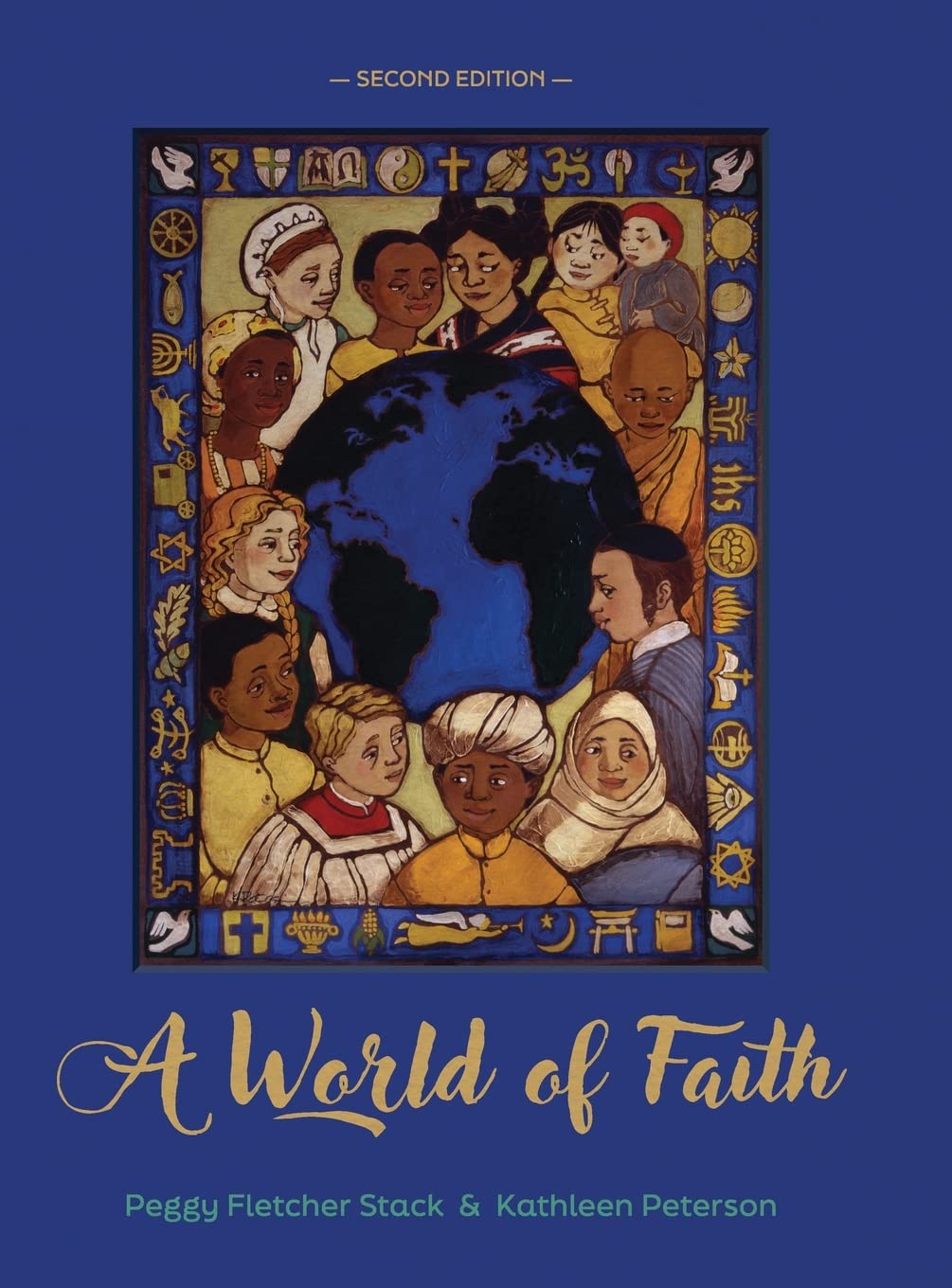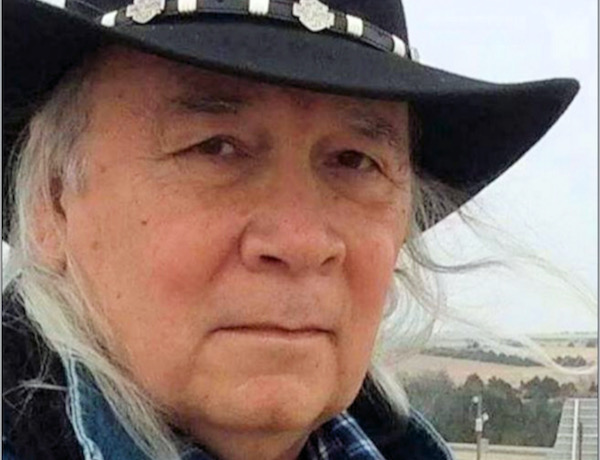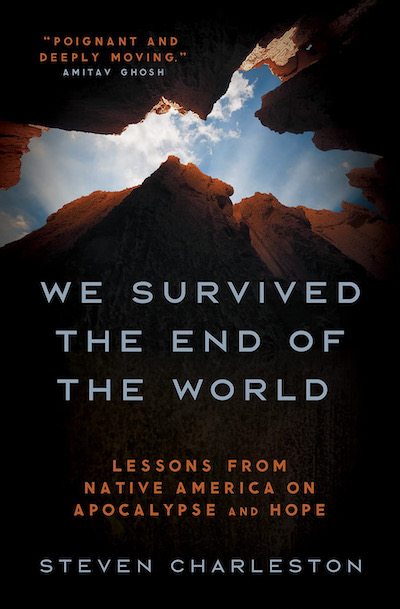
Click on the image to enlarge it for easier reading. (Photos by John Hardwick, used here courtesy of JCRC-AJC Detroit.)
‘Confronting all forms of hate is everyone’s responsibility.’
By HOWARD BROWN
Author of Shining Brightly
In the midst of a world of strife and daily tragedy, I was thrilled to co-chair our annual Jewish Community Relations Council-American Jewish Committee Detroit (JCRC-AJC) “model seder” that represented a global gathering of religious and diplomatic leaders affirming our shared goal of peace. Each year, Jewish communities around the world host “model seders” before the start of Passover so non-Jews can experience the ancient rituals and themes we celebrate with family and friends.
The seder is a traditional retelling of the biblical account of God leading the Jewish people out of slavery in Egypt. The meal features symbolic foods that remind us of everything from the bitter tears shed in slavery to the taste of unleavened bread, or matzah, during the long journey that followed.
For many years, the Detroit JCRC-AJC has hosted a combined seder for representatives of the global diplomatic community—in particular the Consular Corps of Michigan—and also dozens of our interfaith partners. This year, more than 100 people—including Jews, Christians, Muslims, Buddhists, Hindus—attended the program. Among the nations represented were: the UK, Germany, Poland, Italy, Austria, Jordan, South Korea, Mexico, Canada, and Japan.
Our honorary chair, who spoke about the need to protect vulnerable minorities, was Yusuke Shindo, Consul General of Japan for Michigan and Ohio.
I served as co-chair of the planning committee along with Carol Ogusky, who has long been active in building interfaith partnership and writing about the importance of this work.
What impressed me this year was that, despite all of the conflicts around the world and the horrific rise in antisemitism, this circle of global leaders gathered with us once again to affirm our unity in praying for peace.
Anyone who has been to a seder knows the question we ask: “Why is this night different than all other nights?”
At the end of our program, we answered that question by reading aloud together a portion of “A Prayer for This ‘Different’ Seder 2024”, written by Rabbi Noam E. Marans, Director of Interreligious and Intergroup Relations for the American Jewish Committee.
In unison, we read:
We pray for the victims of horrific terrorism and their families whose lives have been shattered.
We pray for the hostages and their loved ones, who continue to live through unending horror.
We pray for the innocents who are victims of war, human beings created in the image of God. We pray for the dead, the injured, the hungry, and the displaced. …
We pray for the purveyors and deliverers of humanitarian aid who endeavor to do what is right and needed.
We pray for the peacemakers. May they bring shalom to all.
We pray for the world to wake up and say: There is no place for antisemitism in our society. Confronting all forms of hate is everyone’s responsibility.
Shirah chadashah:
Let us sing to God a new song, a hymn that longs to extol our deliverance from despair to joy, from mourning to celebration, from darkness to light, from enslavement to redemption, from war to peace.
Also, at every table, we made available my own discussion guide, titled: Interfaith Bridge Building—Why do this work? If you would like a copy of that discussion guide yourself, you can download a PDF of it for free at my website, ShiningBright.com by going to this page, then scrolling down to the navy-blue section that lists discussion guides.
